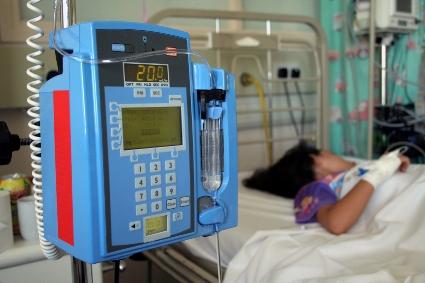Health officials in South Korea today reported five new MERS-CoV cases, pushing the total in the country's quickly growing hospital cluster to 35, according to translations of an official report.
Two healthcare workers are among the five new cases, according to a government statement translated and analyzed by Avian Flu Diary and FluTrackers, two online infectious disease news sources.
According to the report, three of the new cases appear to be secondary ones linked to the index patient, a man whose MERS-CoV (Middle East respiratory syndrome coronavirus) infection was detected after he returned from travel to a handful of Middle East countries. One of the health workers appears to be among the secondary infections.
Two of the cases—one involving medical staff—are classified as tertiary infections, which would lift the number of such third-generation transmissions to five.
South Korea's health ministry now has 1,312 people in quarantine, up from 682 2 days ago, Yonhap News Service reported today.
So far no MERS-CoV illnesses have been announced in Hong Kong or China linked to a South Korean businessman who traveled to the two areas while sick and is now in isolation and treatment at a Guangdong province hospital.
WHO: Pattern resembles Saudi clusters
The World Health Organization (WHO) today said it is working closely with health authorities in South Korea and China to curb the outbreak and to better understand how the disease transmits.
The agency also said it is in contact with health authorities in the Middle Eastern countries that South Korea's index patient had recently traveled to determine how the man was exposed to the virus. Those countries are Saudi Arabia, Qatar, United Arab Emirates, and Bahrain.
The WHO added that all known transmission of the virus in South Korea occurred before adequate infection prevention and control measures were in place and that the pattern of MERS-CoV spread resembles that seen in earlier hospital clusters in the Middle East. The agency added, though, that further investigations are under way to better gauge the risks in the Korean outbreak, and virus samples from sick patients in South Korea and China are being sequenced to assess for any genetic changes. It did not specify where sequencing was happening.
Little is known about how MERS-CoV transmits among humans, and when human-to-human transmission has been seen, it has mostly occurred in healthcare settings where suboptimal infection control conditions can trigger large numbers of secondary cases, similar to what occurred in Saudi Arabia in the spring of 2014, the WHO said.
More South Korean MERS cases are expected in people who had contact with the first cases before health officials implemented control measures, the WHO warned. Because it isn't always possible to identify MERS-CoV infections early, the agency advised health facilities to have standard infection prevention and control practices in place in general to guard against a range of infectious diseases.
The WHO said droplet precautions, including eye protection, should be used for caring for any patient with an acute respiratory infection. Healthcare workers in all countries should remain on high alert for potential MERS-CoV infection, the group said, especially in travelers or migrant workers returning from the Middle East.
Outbreak response takes shape
South Korea's government, following an emergency meeting yesterday, created a special task force of medical experts to guide its response to the outbreak, the Korea Herald reported today. It added that the task force has designated specialized facilities across the country's regions for isolating and managing MERS cases.
So far 280 schools and kindergartens have closed or will suspend classes in four regions affected by the disease: Seoul, as well as Gyeongii, South Chungcheong, and North Chungcheong provinces. The country's health ministry, however, called the closures unnecessary, given that MERS-CoV infections in children have been rare, and no illnesses have been detected in students.
South Korean authorities are still refusing to name affected health facilities, but it said 14 have received a confirmed patient at least once during the outbreak, the Herald reported. Eleven are hospitals and three are small clinics.
In related developments, the WHO's Western Pacific Region office today said it has set up an event management team to provide information and epidemiology support, technical expertise, and risk communications.
Meanwhile, Hyundai Motor Company and its Kia affiliate have asked employees to avoid traveling to the Middle East, due to concerns about MERS-CoV exposure, Arabian Business, a news source based in Dubai, reported today, citing a company spokesperson's comment to Reuters.
The WHO in its risk assessment today said it does not advise any travel or trade restrictions or recommend any special screening procedures at entry points.
See also:
Jun 3 Avian Flu Diary post
FluTrackers South Korean MERS case list
Jun 3 Yonhap News story
Jun 3 WHO risk assessment
Jun 3 Herald report
Jun 3 WHO Western Pacific Region office statement
Jun 3 Arabian Business story




















